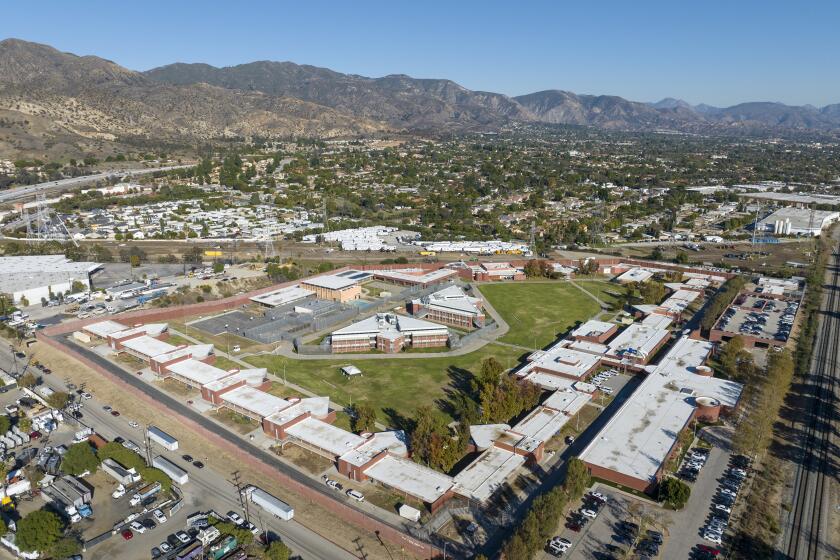Ways Californians can reduce water consumption during drought
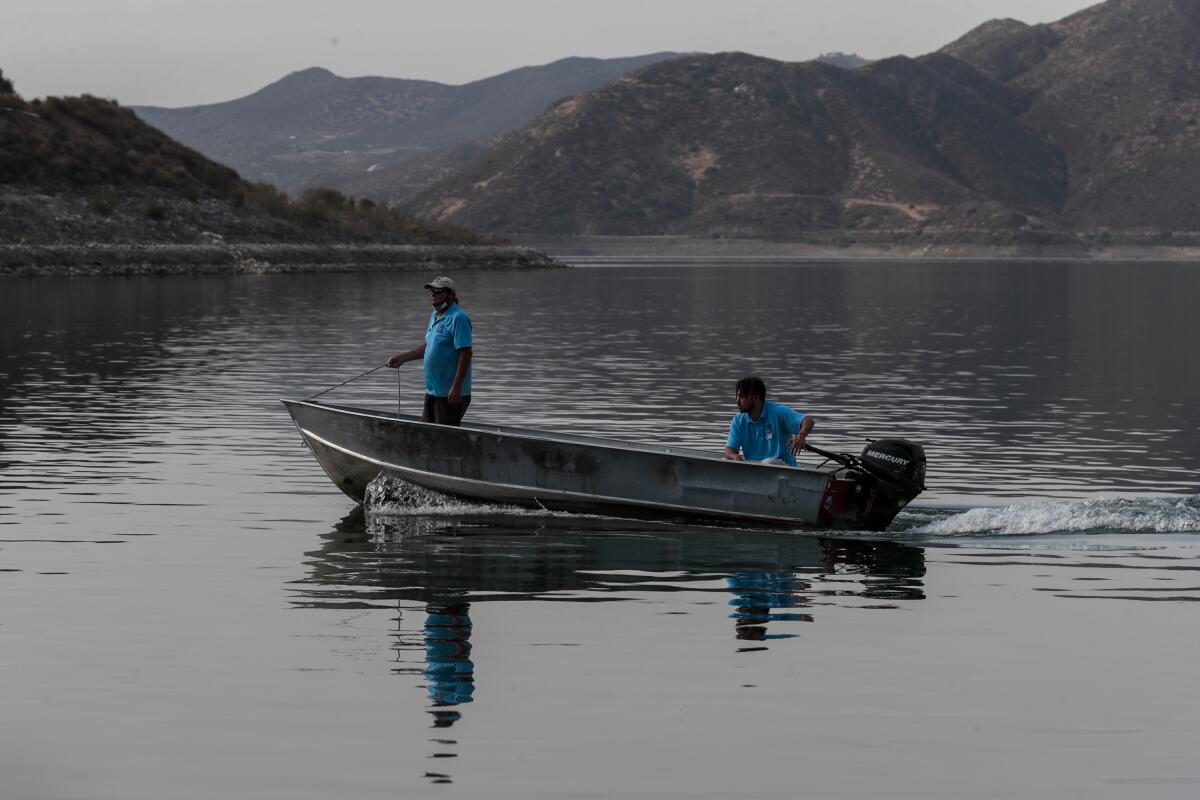
- Share via
Good morning, and welcome to the Essential California newsletter. It’s Thursday, June 16. I’m Justin Ray.
The water crisis is causing lawmakers and residents to make hard choices.
Nearly 60% of the state is experiencing “extreme drought” conditions, according to the National Integrated Drought Information System. The Colorado River’s reservoirs have declined so far that major water cuts will be necessary next year. Last month, Gov. Gavin Newsom told the state’s largest urban water suppliers that if conservation efforts didn’t improve California might need to impose mandatory water restrictions.
Most of California’s water is used for agriculture, said Heather Cooley, research director at the Pacific Institute, an Oakland nonprofit that focuses on water issues. “There’s always a bigger user out there,” she said. “But what we really need is for everyone to do something.”
To make sure you are doing your part, here are some tips for water conservation:
Become a leak detective. If you fix a leak, you not only save water, but you also save money. You can check for leaks by investigating your water bill for irregularities. You can also check your water meter: Shut off all the water-using devices in your home. If your water meter is still showing water usage, you may have a leak somewhere.
You can get money for letting your lawn die, if you have a plan. You might want to consider taking advantage of the Metropolitan Water District’s Turf Replacement Program. It pays $2 a square foot for up to 5,000 square feet of lawn converted to approved “water-wise” uses. Some local agencies offer an additional rebate on top of that, which could mean an even bigger payout once work is completed and approved.
Consider how you use dishwashers. You should only run dishwashers when you have a full load. You should also only scrape solid food off your dishes before loading them into the machine, rather than pre-rinsing them.
Replace your shower head. Swapping out an older shower head for a more efficient model is “a guaranteed way to save more water without having to think about it,” said Terrence McCarthy, a water resources policy manager at the Los Angeles Department of Water and Power. The DWP will mail free shower heads and faucet aerators to customers who request them.
And now, here’s what’s happening across California:
Note: Some of the sites we link to may limit the number of stories you can access without subscribing.
L.A. STORIES
Rep. Karen Bass pulled ahead of rival Rick Caruso after a surge of primary election vote-by-mail ballots boosted the congresswoman. Still, the mayoral race remains highly fluid, and there are many votes left to count. The final tally won’t be known for days or weeks, but the outcome is: Bass and Caruso advance to a runoff in November. Los Angeles Times
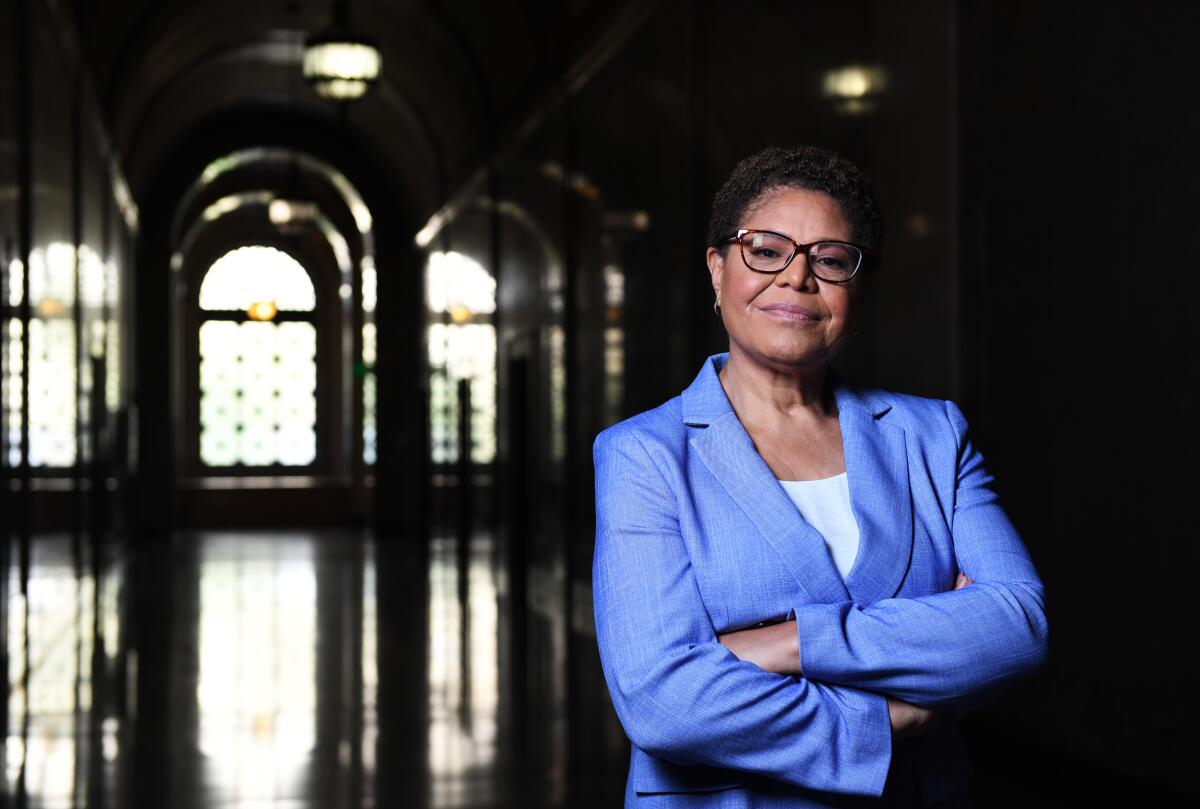
Like podcasts? Tell us what you think!
To help us with our daily news podcast, we hope you’ll take a minute to answer some short questions on what you’d like to hear from us! You may answer as many or as little as you’d like. Every answer helps us improve and cater to you! Take the 5 minute survey now.
POLITICS AND GOVERNMENT
A California bill making its way through the Legislature would give $1,000 a month to unhoused high school seniors. Senate Bill 1341 proposes a monthly, no-strings-attached check for eligible students for five months, from April of a student’s senior year until August. The bill would provide enough funding for 15,000 students, which is the number of seniors in public high schools who in the 2020-21 school year were unhoused. Los Angeles Times
The Supreme Court placed limits on a state labor law that authorizes private lawsuits on behalf of groups of workers, even if they had agreed to resolve their disputes through individual arbitration. Los Angeles Times
Column: The weird saga of Peter Navarro, from San Diego environmentalist to Trump henchman. I previously told you about the California lawyer who is a focus of the Jan. 6 investigation. Now, you can learn about Navarro, “the nutty UC Irvine professor who schemed to steal the 2020 election for President Trump.” Los Angeles Times
CRIME, COURTS AND POLICING
The state of California will pay $51 million to settle lawsuits after a fatal shooting at a home for veterans. On March 9, 2018, Albert Wong, 36, a former patient at the Veterans Home of California in Yountville, took three staffers hostage: Jennifer Golick, 42, Christine Loeber, 48, and Jennifer Gonzales, 29. Officials said Wong shot and killed them before killing himself. A spokesperson for the state Department of Veterans Affairs confirmed that the money will settle the cases brought by the families of the three women. Associated Press
The gunman who killed two El Monte police officers Tuesday when they responded to a call at a motel was on probation for a gun-possession charge at the time of the shooting. Details of what exactly happened during the shooting remain unclear; however, the gunman’s mother has discussed some of the events that took place in his life before the incident, which left him dead along with the two officers. Los Angeles Times
Support our journalism
HEALTH AND THE ENVIRONMENT
Many medical students and healthcare workers have dealt with burnout during the COVID-19 pandemic. Two private universities in California want to help them. Touro University California and Oakland’s Samuel Merritt University have received three-year federal grants to create burnout-prevention programs. They hope to help address the issue by identifying burnout symptoms, establishing peer educators and providing classes. CalMatters
CALIFORNIA CULTURE
Harry Gesner, the designer who created Malibu’s crested Wave House, has died at 97. Gesner designed and crafted dozens of prized homes around Los Angeles, but he is perhaps best known for the Wave House in Malibu, built in 1957, which juts out over the sand with a series of crested roofs. Los Angeles Times
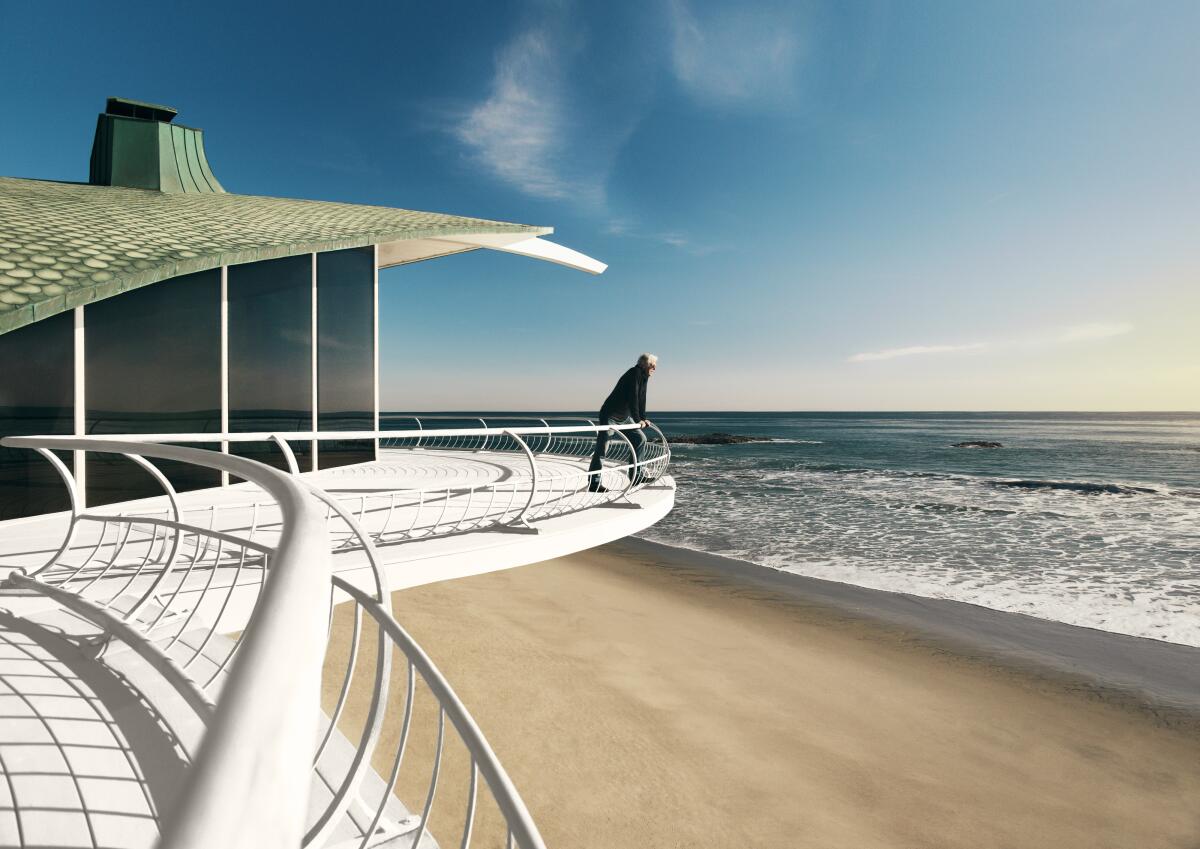
Deconstructing a provocative piece published by the Atlantic. The outlet released an article by Nellie Bowles claiming that San Francisco is a “failed city,” ascribing its decline to “progressive leaders” and their “left-wing values.” Bowles highlighted the demise of Dist. Atty. Chesa Boudin, and said voters were “fed up” with criminal justice reform. Times columnist Michael Hiltzik says Boudin’s recall by San Francisco voters is more complicated than it seems. Additionally, Hiltzik reveals some interesting information about Bowles’ family. Los Angeles Times
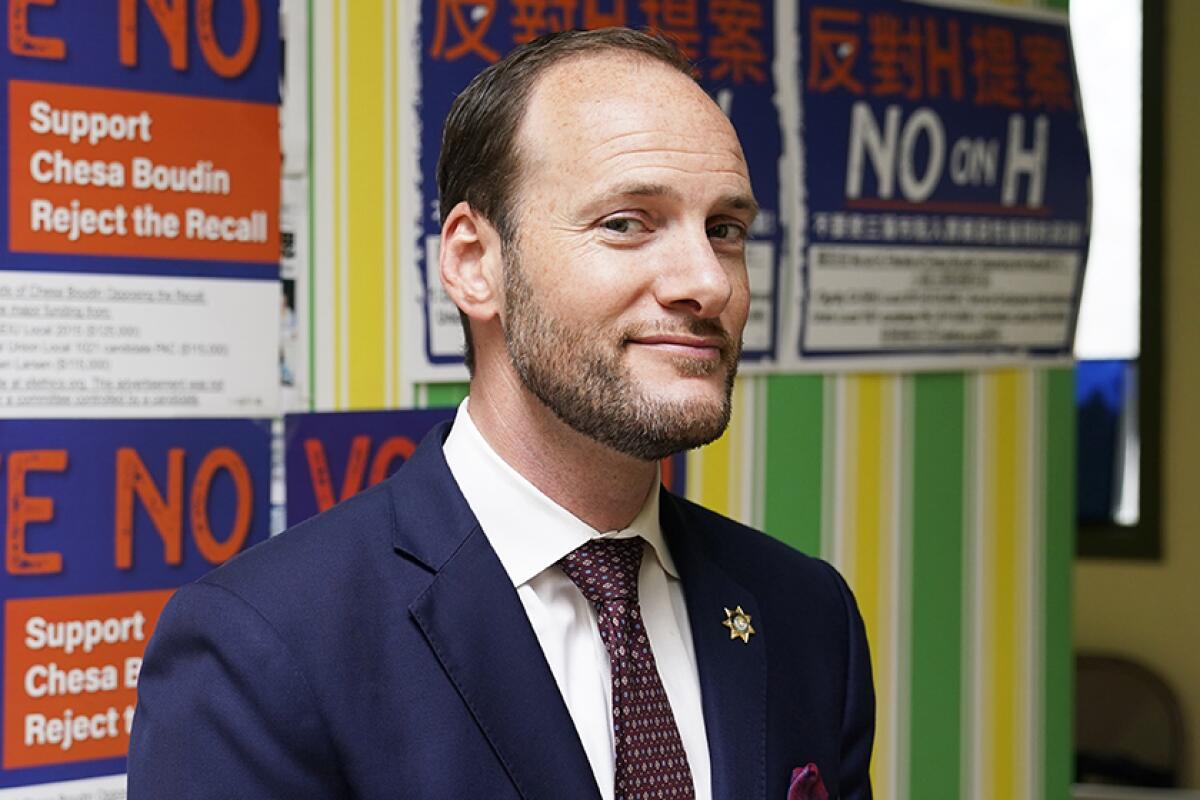
Free online games
Get our free daily crossword puzzle, sudoku, word search and arcade games in our new game center at latimes.com/games.
CALIFORNIA ALMANAC
Los Angeles: Sunny 88 San Diego: Sunny 75 San Francisco: Sunny 70 San Jose: Sunny 82 Fresno: Sunny 102 Sacramento: Sunny 95
AND FINALLY
Today’s California memory is from Jennifer Bergovoy:
I arrived in California in 1973 to start college. On one of my first days at USC, I saw Ron Howard walking in front of me so I said hello, as did he. A few weeks later, I quickly made friends and was invited to a frat party where a bunch of actors I had grown up watching were getting changed so they could perform at the L.A. Coliseum prior to the regular USC football game. I had lots of experiences running into well-known celebrities. The following year, I was standing in the student center and Jane Fonda walks up to me to say hello right before she was to give a talk. When my boyfriend and I were sitting in front of one of the buildings, Jackie Cooper asked us to walk so he could film us as part of a show he was directing. For one of my class projects, I was able to go to the set where Paul Lynde and Betty White were in a scene for Paul Lynde’s short-lived television show. Many movies premiered at USC and the stars of the movies would also appear to talk about their experiences. Access to celebrities during that time was much different than it is now.
If you have a memory or story about the Golden State, share it with us. (Please keep your story to 100 words.)
Please let us know what we can do to make this newsletter more useful to you. Send comments to essentialcalifornia@latimes.com.
Sign up for Essential California
The most important California stories and recommendations in your inbox every morning.
You may occasionally receive promotional content from the Los Angeles Times.

